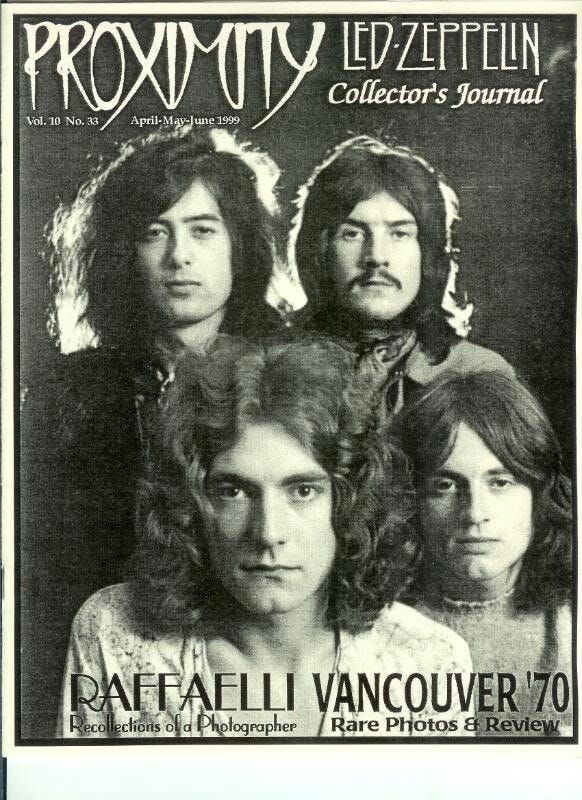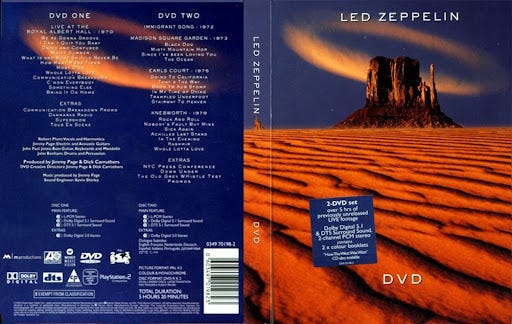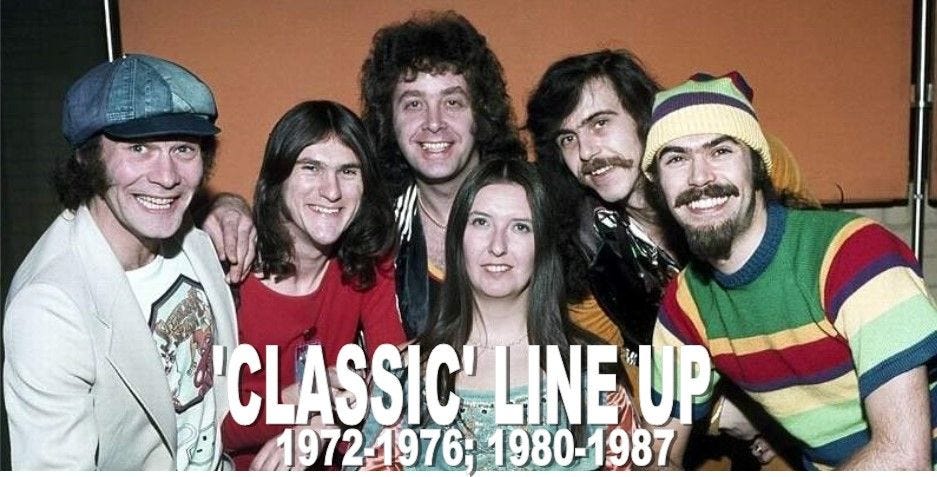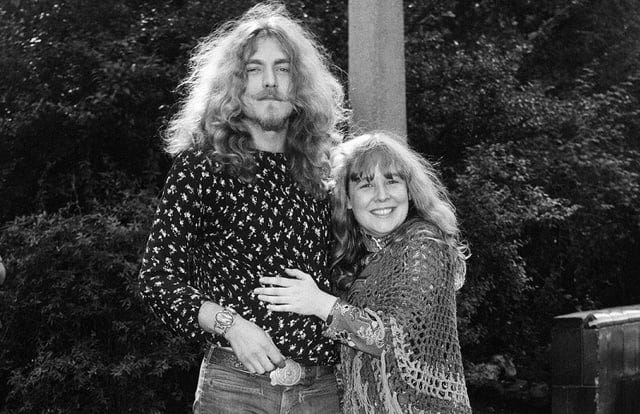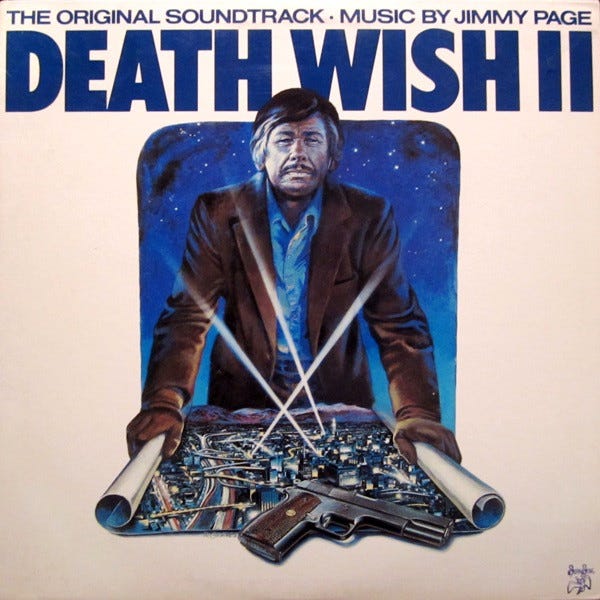Tune Tag #53 with Hugh Jones of "The Record Store Years": Led Zeppelin, Steeleye Span, Pete Droge, Stillwater, Peter Frampton, Grand Funk, Billy Joel
It's the battle of the former bin jockeys, both of whom managed to avoid contracting PVC poisoning at their respective record stores! Spin the record...where will the needle land?
Howdy, Hugh! Str-e-e-e-e-e-e-tch, Squish’n’Tag! You’re IT!
Tune Tag is proud to welcome of The Record Store Years!
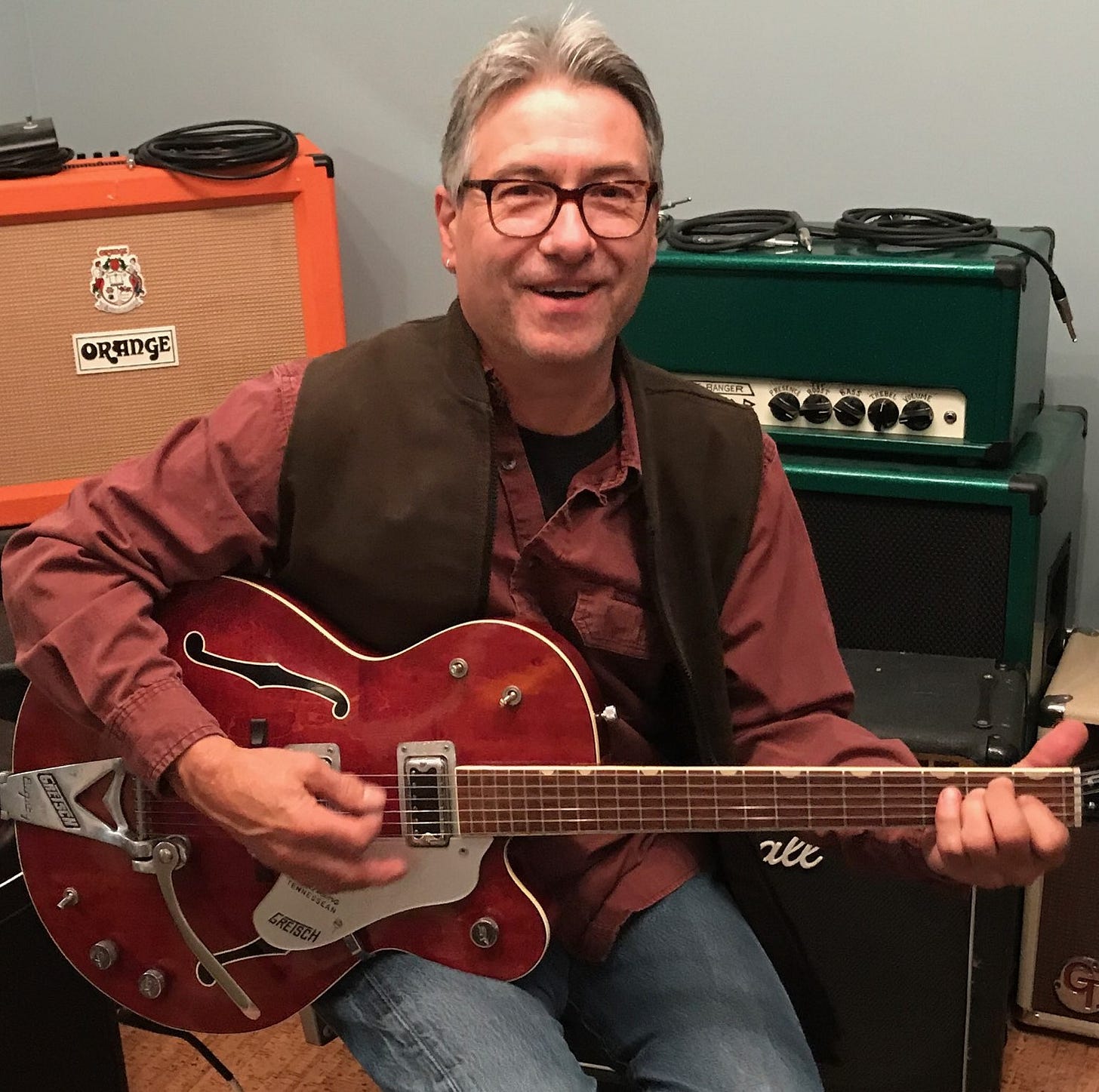
Hugh: “I grew up in and near New York City in the late ‘60s/early ‘70s, and being the luckiest guy in the world: My first two concerts were the Beatles at Shea Stadium in 1965 and Led Zeppelin at the Fillmore East in 1969.”
Brad butts in: You beat me, Hugh! I only saw The Beatles on The Ed Sullivan Show in 1964 when I was 8, and I saw Led Zep live at Houston’s Hofheinz Pavilion (on the U of Houston campus)…but, in the following year as your Fillmore East show…1970!
Back to Hugh: “The course of my life was thereby set, not to mention my continuing luck, as I spent 25 years working in a used/collectors record store after moving to Seattle in 1974. Working in that world (described in excruciating detail in my Substack, The Record Store Years) exposed me to every kind of music imaginable and there was very little that didn’t stick with me in some way.
“For me to love a piece of music, I really have to feel an emotional reaction to it, and if that reaction occurs it doesn’t matter what the genre or style is. I love variety and artists like Todd Rundgren who jump around all over the genre map. I also love learning the history of popular music, and have read extensively on the subject, most recently Al Kooper’s Backstage Passes & Backstabbing Bastards, which somehow I missed first time around (in 1998), and covers so much ground in his era.
“I consider myself a true music omnivore: The Beatles, Zeppelin, Richard Thompson, Bob Wills, Todd, Aretha Franklin, The Carter Family, Grand Funk, and Coleman Hawkins all stand tall in my list of all-time favorites, and take up many linear feet on my record/CD shelves, along with countless others!
“While somewhat mired in the music of the past and ever-resistant to Spotify and streaming (I love liner notes!), I do make feeble attempts to stay current with popular music, and Substack has been helping me with that lately.
“I’m looking forward to my Tune Tag round! Thanks for inviting me, Brad!”
Last week, we were pleased to have of If Ever You’re Listening join us:
Next week, tune in to enjoy the hand-clapping, toe-tapping speed melodies of the mercurial of The Twelve Inch!
Hugh’s song #1 sent to Brad: Led Zeppelin, “Gallows Pole,” 1970
Hugh’s rationale: I chose this track because I am somewhat known as a/the “Led Zeppelin Guy” — my life was changed at age 12 by their 1969 debut at the Fillmore East: I produced 2 iterations of a fanzine (Proximity Led Zeppelin Magazine 1980 - 1983 and Proximity Led Zeppelin Collector’s Journal 1993-1999, with one shown here)….
….and, I eventually had some limited contact with the band and its organization, including an interesting phone conversation with Jimmy Page regarding bootleg videos, and my own bootleg video (8mm film, actually) was used with credit in their 2003 DVD compilation.
To me, “Gallows Pole” contains everything that was great about the band in one 5-minute track! The re-imagining of an old traditional song (as in “When The Levee Breaks”), the build from gentle acoustic to bombastic electric (as in “Stairway To Heaven”), Robert Plant at his high-pitched best, multi-instrumentalist, John Paul Jones on banjo (!), John Bonham’s “subtle as a flying mallet” approach to the drums, and an absolutely smokin’ electric guitar solo by Jimmy Page extending over the fadeout.
Page and Plant adapted and arranged the traditional “Gallows Pole” (aka “The Maid Freed From the Gallows”) from a version by American folk musician and luthier, Fred Gerlach.
Brad’s song #1 sent to Hugh: Steeleye Span, “The Boar’s Head Carol,” 1977
Hugh’s response: Steeleye Span, also being interpreters of older, traditional material, took English folk songs and “rock-ified” them to great effect, and this particular song also utilizes the “quiet-to-louder” approach, starting off acapella, and bringing drums in partway through, and it has a long fadeout as well!
The band was started by Fairport Convention founder Ashley Hutchings, who played and wrote on their first four albums before leaving to start Steeleye Span, as Fairport went in a more rockin’ direction.
During this time, the sublime and sorely-missed Sandy Denny was also in Fairport, and in 1971, Sandy sang a duet with Robert Plant (“Battle Of Evermore”) on Led Zeppelin’s fourth LP, a million-selling classic (I hope she got points on it)! Of the Led Zeppelin session, Sandy once remarked, “I had a hard time keeping up with Robert!” (paraphrased from memory).
As Page explained to senior editor, Dave Schulps of Trouser Press in 1977: “‘Battle of Evermore’ was made up on the spot by Robert [Plant] and myself. I just picked up John Paul Jones’s mandolin, never having played a mandolin before, and just wrote up the chords and the whole thing in one sitting.”
To further the Fairport-Led Zep connection (about which I once wrote an article in the fanzine), FC bassist Dave Pegg came up in the same musical circles as Plant and Bonham in 1960s Birmingham, England. According to Fairport producer, Joe Boyd, the Birmingham boys referred to themselves as members of the “Birmingham Water Buffalo (drinking) Club,” and some of the Fairports were more than capable of matching Led Zeppelin at Zep’s more widely-known rock star antics!
Fairport drummer Dave Mattacks (not from Birmingham, but Middlesex), in addition to playing with dozens (hundreds?) of other artists, plays drums on Jimmy Page’s first post-Zeppelin solo work, the 1982 Death Wish II soundtrack album.
Brad’s rationale: One traditional song (usually centuries old, with no record of ownership/authorship/composer) follows another traditional song! Also, both bands are British, and are likely using more traditional instruments on their respective songs.






